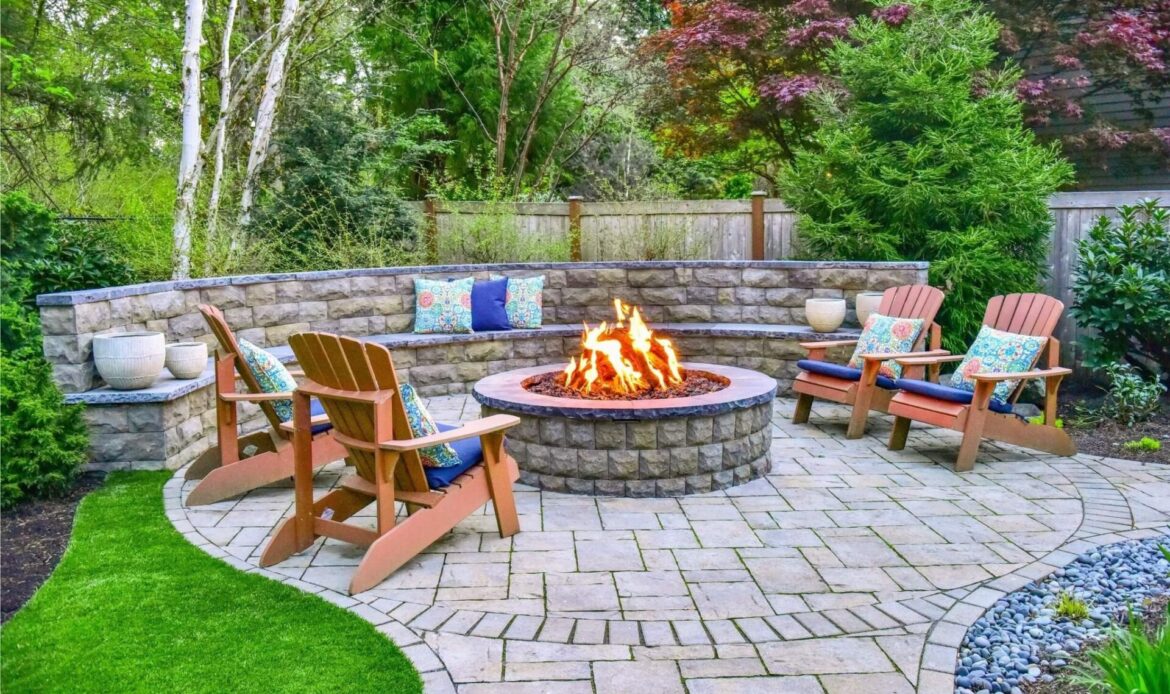Are you overwhelmed by the number of paver choices for your outdoor space? Selecting the perfect pavers can transform your driveway, patio, or walkway into a stunning feature that enhances your home’s curb appeal and functionality. In this comprehensive guide, we’ll explore the best pavers for outdoor spaces, focusing on driveway pavers, patio paver options, and walkway paving stones. We’ll also provide a paver materials comparison to help you make an informed decision.
Understanding Different Types of Pavers
When it comes to pavers, the options are vast. Let’s break down the most popular types to help you choose the best fit for your outdoor area.
Concrete Pavers
Pros:
- Variety: Available in numerous shapes, sizes, and colors, allowing for creative designs.
- Durability: Resistant to wear and tear, making them suitable for high-traffic areas.
- Cost-Effective: Generally more affordable than natural stone options.
Cons:
- Color Fading: Over time, exposure to sunlight can cause colors to fade.
- Cracking: In areas with freeze-thaw cycles, concrete pavers may crack if not properly installed.
Best Uses: Driveways, patios, and walkways.
Brick Pavers
Pros:
- Classic Aesthetic: Offers a timeless, traditional look that complements various home styles.
- Strength: Highly durable and can withstand heavy loads, making them ideal for driveways.
- Eco-Friendly: Made from natural clay, brick pavers are a sustainable choice.
Cons:
- Maintenance: May require sealing to prevent staining and moss growth.
- Cost: Typically more expensive than concrete pavers.
Best Uses: Driveways, patios, and walkways.
Natural Stone Pavers
Pros:
- Aesthetic Appeal: Unique textures and colors that add elegance to any outdoor space.
- Durability: Extremely long-lasting and can withstand harsh weather conditions.
- Heat Resistance: Ideal for areas with high temperatures.
Cons:
- Cost: Generally the most expensive option.
- Installation: Requires professional installation due to the stone’s weight and irregular shapes.
Best Uses: Patios, walkways, and pool decks.
Permeable Pavers
Pros:
- Eco-Friendly: Allows water to drain through, reducing runoff and promoting groundwater recharge.
- Durability: Resistant to cracking and shifting.
- Aesthetic Variety: Available in various designs to suit different styles.
Cons:
- Cost: Can be more expensive than traditional pavers.
- Maintenance: Requires regular cleaning to prevent clogging.
Best Uses: Driveways, patios, and walkways in areas with drainage concerns.
Factors to Consider When Choosing Pavers
Selecting the right pavers involves evaluating several key factors:
Climate & Weather Resistance
Consider your local climate conditions. For instance, in Stone Mountain, Georgia, where summers are hot and winters can be cold, choosing pavers that can withstand temperature fluctuations is crucial. Natural stone pavers, like granite, offer excellent durability and weather resistance.
Durability & Load Capacity
Think about the intended use of the area. Driveways require pavers that can handle heavy vehicles, making brick or concrete pavers ideal choices. For patios, natural stone pavers provide both durability and aesthetic appeal.
Maintenance Needs
Some pavers require more upkeep than others. Concrete pavers may need sealing to prevent staining, while natural stone pavers might require periodic cleaning to maintain their appearance. Consider how much time you’re willing to invest in maintenance.
Budget Considerations
Your budget will play a significant role in your decision. Concrete pavers are generally more affordable, while natural stone pavers are a higher-end option. Balance your aesthetic desires with your budget constraints.
Aesthetic & Design Preferences
The style of your home and personal taste should guide your choice. Brick pavers offer a classic look, while natural stone pavers provide a more rustic or elegant feel.
Best Paver Options for Specific Outdoor Spaces
Best Pavers for Driveways
For driveways, durability and load-bearing capacity are paramount. Brick pavers are an excellent choice due to their strength and classic appearance. Concrete pavers are also suitable, offering a range of styles at a more affordable price point.
Best Pavers for Patios
Patios benefit from pavers that are both comfortable underfoot and visually appealing. Natural stone pavers, such as flagstone or travertine, provide a luxurious feel and are perfect for creating a relaxing outdoor retreat.
Best Pavers for Walkways
Walkways should be both functional and attractive. Permeable pavers are an eco-friendly option that allows water to drain through, reducing runoff. Concrete pavers can also be used to create intricate patterns and designs.
Common Mistakes to Avoid When Choosing Pavers
- Focusing Solely on Appearance: While aesthetics are important, ensure the pavers you choose are suitable for your climate and intended use.
- Ignoring Installation Requirements: Proper installation is crucial for the longevity of your pavers.
- Overlooking Maintenance: Consider the long-term maintenance needs of the pavers you select.
Installation & Maintenance Tips
Installation Steps:
- Preparation: Excavate the area to the required depth, ensuring a stable base.
- Base Layer: Add a layer of crushed stone or gravel for drainage.
- Sand Layer: Spread a layer of sand to create a level surface.
- Laying Pavers: Arrange the pavers in your desired pattern.
- Compaction: Use a plate compactor to set the pavers and fill joints with sand.
Maintenance Tips:
- Regular Cleaning: Sweep and wash pavers periodically to remove debris and prevent staining.
- Sealing: Apply a sealant to protect against stains and enhance color.
- Weed Control: Use polymeric sand or install edging to prevent weed growth between pavers.
Conclusion
Choosing the right pavers for your outdoor space involves careful consideration of factors like climate, durability, maintenance, budget, and aesthetic preferences. By evaluating these aspects, you can select pavers that

